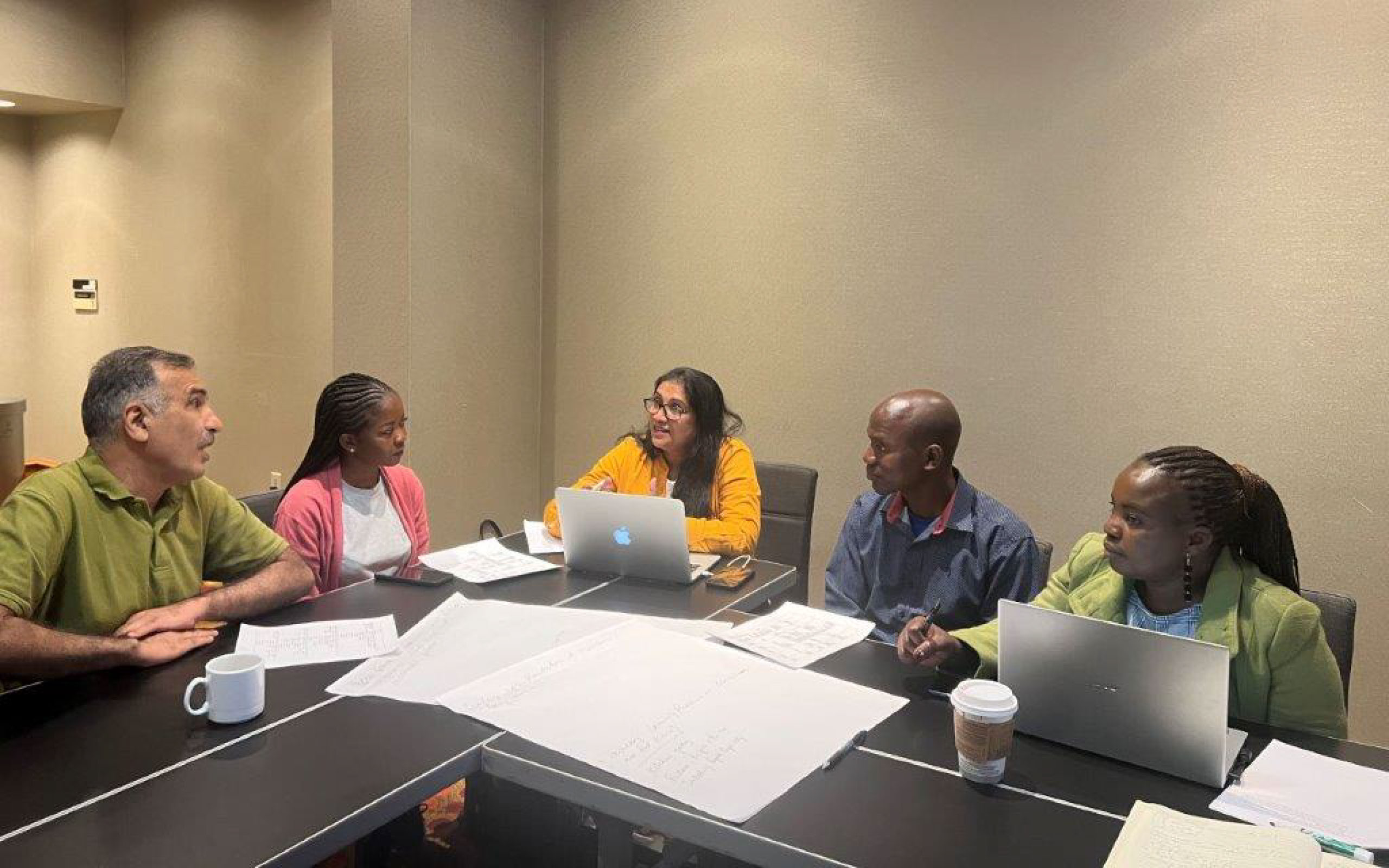
Significant gender inequalities continue to exist, especially in relation to educational attainment and economic participation. Girls have been even more severely disadvantaged than boys due to the Covid-19 crisis. According to UNICEF, 129 million girls are out of school and 116 million young women, almost one-quarter of all women of this age group (age 15-24), have never completed primary.
COL’s GIRLS Inspire initiative aims to promote gender equality and women’s empowerment through skills development for livelihoods using open and distance learning (ODL). This includes a focus on empowering communities as change agents to help mitigate the adverse impact of climate change and address while adopting sustainable livelihood practices.
Recently, on the margins of PCF10, a workshop was held with COL and its GI partners where a draft strategy for digitisation of learning resources, focussing on climate responsive sustainable livelihoods and food security was developed. The hybrid workshop was attended by 16 participants from India, Kenya, Malawi, Mozambique, Namibia, Sri Lanka, Pakistan, and Tanzania.
The session took stock of existing resources and the capacity of partners, as well as possible avenues for collaboration. Partners’ practices were identified as it relates to climate change, climate responsive sustainable livelihoods and food security, along with levels of community engagement.
Ms Frances Ferreira, Acting Director: Skills COL commented,
“This workshop brought together representatives from various contexts who made an invaluable contribution to the strategy document which will be the blueprint for the development and digitisation of learning resources to promote lifelong learning on climate responsive sustainable livelihood practices.
Addressing complex issues such as climate change is no easy task and demands collaboration from various stakeholders to change the attitudes and behaviour of communities towards preserving the environment.”
Considering that education for women and girls is strategically important for social and economic recovery and achieving the Sustainable Development Goals, PCF10 provided a strong emphasis on education for women and girls. Around the globe, but primarily in developing countries, Covid-19 has forced many girls to drop out of school, creating a permanent loss in human capital and narrowing their chances of improving their living standards.
The Forum’s focus on resilience ensured increased opportunities for women’s participation with a s focus on research and practice-related skills in many areas, such as:
- Innovations in offering programmes leading to skills and employability of girls to improve their livelihoods;
- Measuring learning quality in programmes for women and girls, especially from the perspectives of programme effectiveness; and
- Creating specialised lifelong learning environments for women to support sustainable development.


